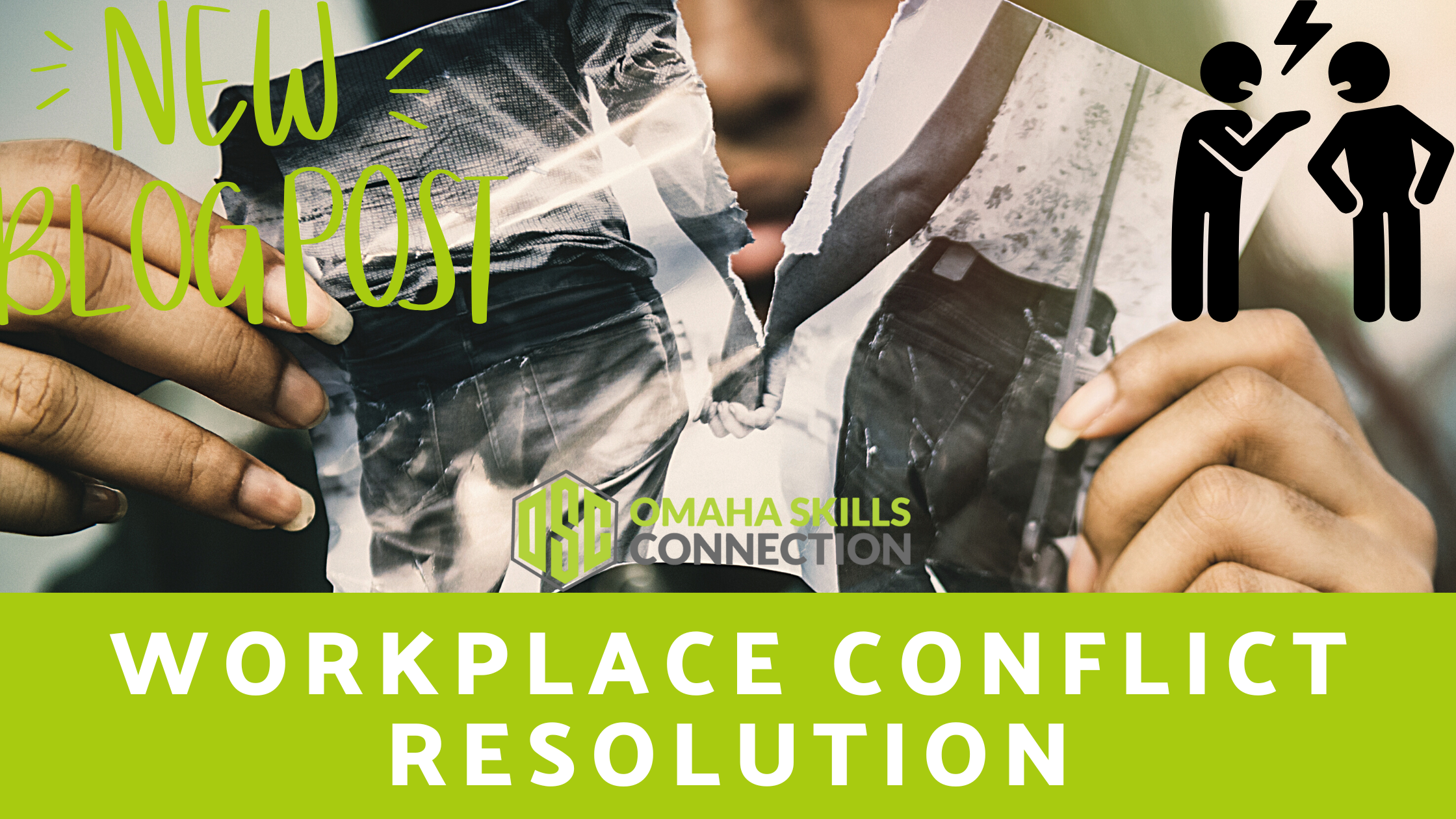 By: Carly Peterman, at the University of Nebraska at Omaha, as part of Heather Nelson’s Service Learning class.
By: Carly Peterman, at the University of Nebraska at Omaha, as part of Heather Nelson’s Service Learning class.
So, you’ve just started your exciting new job! Things are looking up, and you’re ready to get going… After some time passes you start to realize some issues going on between you and a fellow coworker, maybe even a manager. Do you say something? Is this something you’re going to have to live with for the rest of your career? Spending 40+ hours a week around people you didn’t choose is bound to result in some roadblocks. Instead of letting resentment brew, or worse, losing interest in your job, here are some ways to work and resolve this conflict.
A personal account taken from an ABC article that focuses on accounts of workplace conflict describes an example of some issues people have faced in the past. One chef recalls a time when he was calling out orders and tickets in the kitchen, trying to stay ahead of the rush, when one of the owners came up to him and asked him, “What’s with your attitude?” He describes how restaurants often have an issue with egos, and if a senior coworker or manager feels as if they are not important, it develops into them feeling as if they need to throw their weight around or regain seniority.
Here at OSC, we bring people together from all sorts of diverse backgrounds. While this is great for meeting new people from all different backgrounds, sometimes it can be hard adjusting to how other people work, considering their point of view will be dependent on their background and culture. Instead of focusing on preventing conflict, it’s more important to learn how to resolve it, as conflict is inevitable.
One of the studies conducted on workplace conflict, “Impact of Workplace Conflict Management on Organizational Performance: A Case of Nigerian Manufacturing Firm” from the journal of management & strategy, looked into what causes these kinds of issues and how to resolve them.
- The first step is to clearly define what the issue is and figure out where both sides are coming from. Obtaining as much information as possible is key. Allow both sides of the argument to have enough time to explain their situation and understand.
- Choose a safe quiet place to talk with no interruptions.
- The next step is to establish ground rules. Identifying a solution without favoring either party is a great way to avoid further issues.
Looking for underlying issues, such as cultural or background issues, before finding a solution is also another great idea. Brainstorming together until both parties are out of ideas is a good way to work together to reach a common goal, which is ensuring the problem does not resurface. The study concluded that “conflict was an unavoidable phenomenon in organizational life, and it could contribute to or detract from organizational performance depending on the conflict management methods adopted in the workplace.”
At OSC, people from previous military backgrounds, races, locations, and cultures are brought together with a common goal of obtaining long-term work. Part of getting ready to join the workforce in the new job involves career readiness. A large part of career readiness is understanding the challenges one might face entering new employment or a new field of employment.
Understanding that disagreements with coworkers or managers are inevitable, it’s important to know how to resolve these issues before starting a job, although it is never too late to learn.
References:
- Study: https://citeseerx.ist.psu.edu/viewdoc/download?doi=10.1.1.1004.1299&rep=rep1&type=pdf
- Personal Account: https://www.abc.net.au/everyday/workplace-conflict-stories-andadvice/10065080
- Issues: https://www.masterclassmanagement.com/ManagementCourseShortStoryConflict.html
- Ego: https://hbr.org/2021/08/how-to-work-with-someone-who-creates-unnecessary-conflict
- Culture: https://www.shrm.org/resourcesandtools/tools-andsamples/toolkits/pages/managingworkplaceconflict.aspx
About Omaha Skills Connection
Omaha Skills Connection is a 501c3 non-profit organization located in Omaha, Nebraska
established as a result of the post-pandemic era to help bridge the skills gap between
education, technology, and today’s workforce. Omaha needs an educated, flexible, and dynamic
workforce in today’s knowledge-based economy. OSC connects talent to opportunity,
modernizing employee development for today’s workforce.

